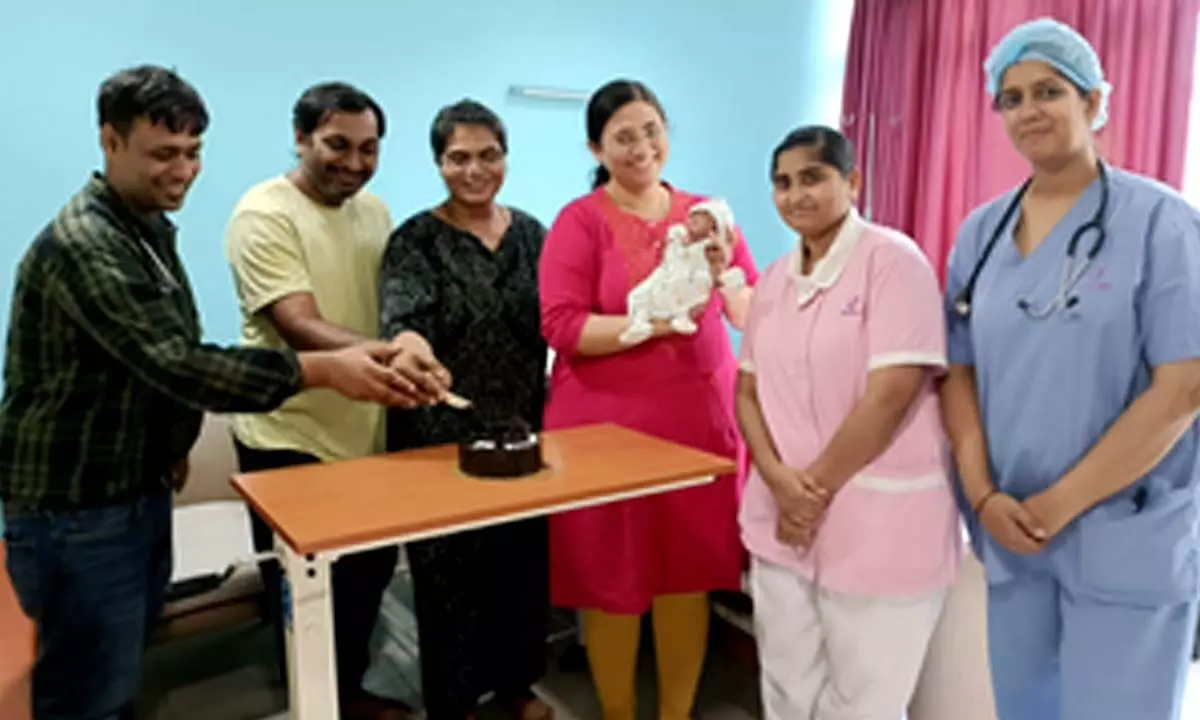Live
- State can’t scrap deals with Adani ‘unilaterally’, says CM
- Visakhapatnam: After a long gap, Rushikonda south road reopens for public
- Minister Dola Sree Bala Veeranjaneya Swamy, MLA Janardhana Rao, extend Christmas wishes
- No-detention policy evokes mixed reactions from educators, parents
- Christmas celebrations held at Raj Bhavan
- Police to use technology for crime prevention: SP
- Congress demands Amit Shah’s scalp, holds massive protest in Hyderabad
- Visakhapatnam: Spiritual meeting today
- SSC exam fee date extended
- Govt expedites Phase-I of scheme
Just In
Bengaluru doctors save premature girl born at 25 weeks weighing 750 grams

In a medical feat, doctors here gave a new lease of life to a premature girl born at 25 weeks, weighing just 750 grams.
Bengaluru: In a medical feat, doctors here gave a new lease of life to a premature girl born at 25 weeks, weighing just 750 grams.
At 25 weeks, doctors at Cloudnine Group of Hospitals, Bengaluru, diagnosed the mother with an incompetent cervix and severe urinary tract infection (UTI).
While an incompetent cervix can shorten and weaken the cervix, or open it too soon during pregnancy, UTIs cause inflammatory reactions leading to uterine contractions and an increased risk of preterm labour.
The severe UTI led to the spontaneous rupture of membranes, progressing labour at 25 weeks. The Bengaluru-based woman gave birth to a girl weighing 750 grams.
At 25 weeks of life, most of the organs of a foetus are not properly developed, and hence, the chances of survival of such premature babies are very slim.
"When the mother was 25 weeks pregnant and was diagnosed with an incompetent cervix and severe UTI, we were very uncertain about the outcome and the baby's survival," Mohit Singhal, Consultant Neonatologist and Paediatrician at Cloudnine, said on Thursday.
"In the Western countries, approximately 50-60 per cent of babies born between 24 and 26 weeks survive. Only 1 in 4 babies (25 per cent) has an intact survival or near-typical outcome. About 50 per cent can have mild developmental impairments, and 25 per cent may face severe neurodevelopmental problems, such as issues with movement, cerebral palsy, hearing loss, vision loss, and severe learning difficulties," he added.
Soon after birth, the baby developed respiratory distress, necessitating intubation and ventilator support. On the second day, the baby experienced hypotension or low blood pressure and required medicines to stabilise circulation and to optimise oxygen supply.
Further, an ECHO scan, done to assess the heart condition, revealed a significant patent ductus arteriosus -- an extra blood vessel, which was removed with medicine.
After a challenging 62-day stay in the neonatal intensive care unit, the baby was discharged at a weight of 1.67 kg, the doctor said.
He noted that "the baby is doing well, growing without any complications".

© 2024 Hyderabad Media House Limited/The Hans India. All rights reserved. Powered by hocalwire.com






